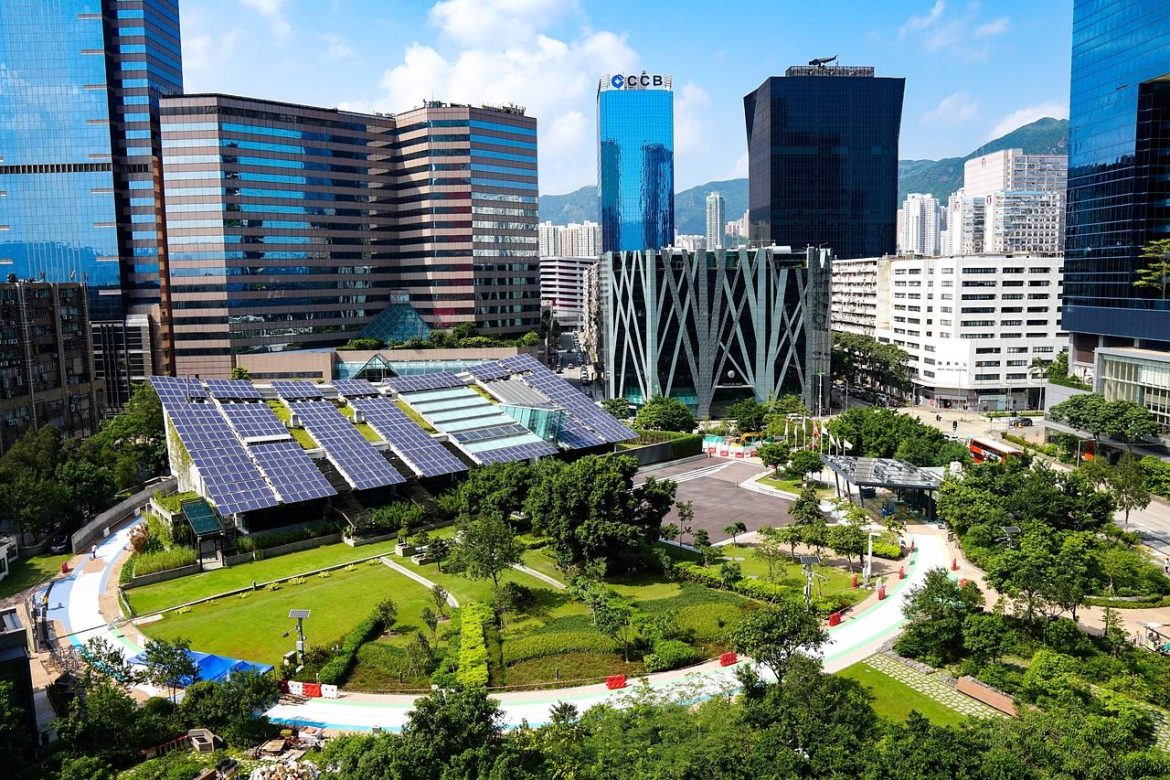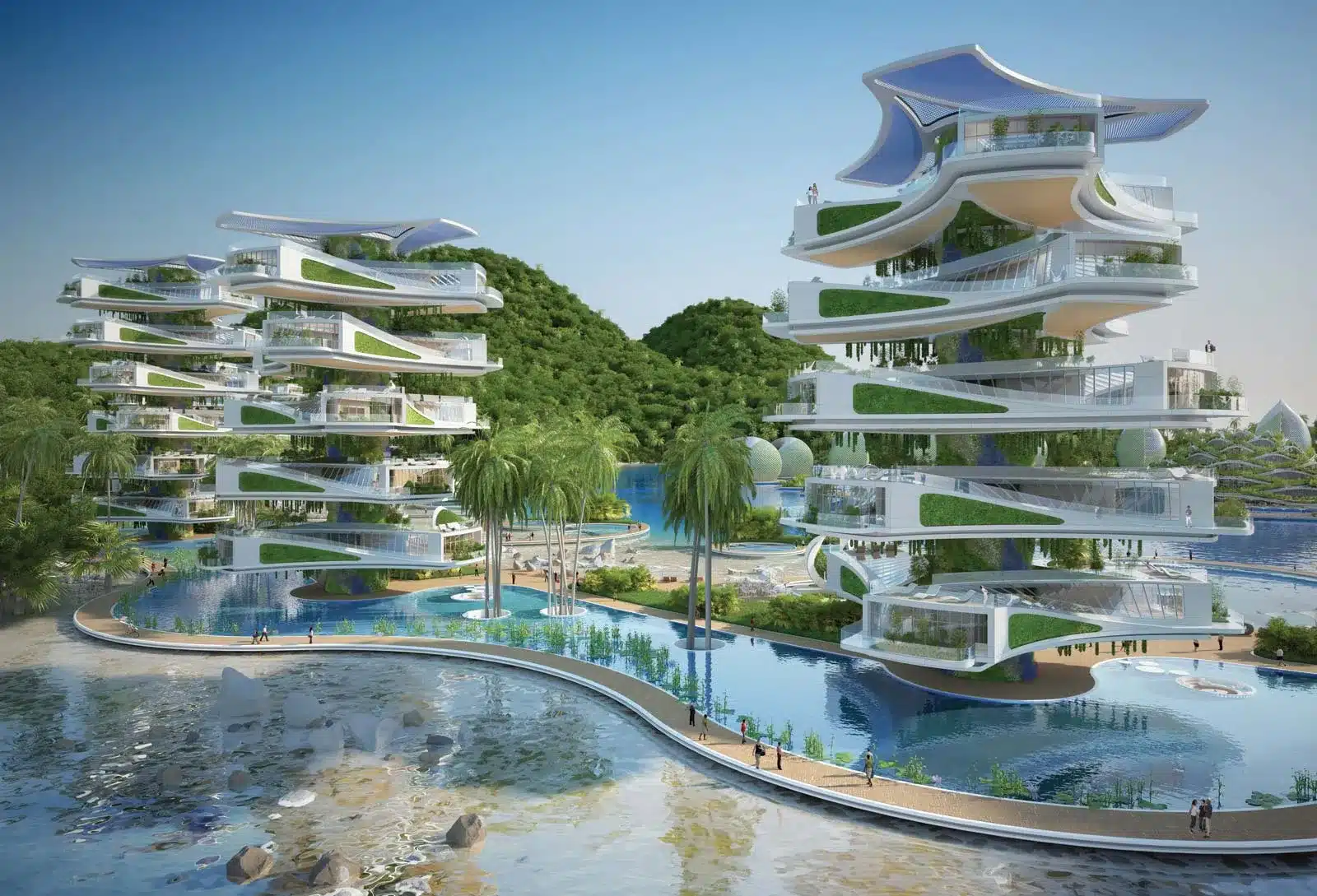Technology is rapidly reshaping how we approach sustainability, with artificial intelligence (AI) and the Internet of Things (IoT) as the biggest movers in today’s tech landscape. These futuristic innovations are revolutionizing green practices across industries by optimizing energy consumption, reducing waste, and enhancing environmental monitoring.
From smart homes to entire cities, AI and IoT are driving new efficiencies that were once unimaginable, making eco-friendly living more accessible and impactful than ever before.
This is possible because of the vast amount of data that today’s technology can collect and analyze, using that information to identify patterns and optimize resource use.
For instance, AI can predict the energy demands of a city or a whole region, allowing more efficient distribution and reducing unnecessary power consumption. IoT devices, like smart meters and connected sensors, inform AI analyses with real-time monitoring of environmental conditions, energy usage, and potential inefficiencies.
Together, AI and IoT technologies enable more informed decision-making to benefit the environment and the economy.
Smart Cities and the Future of Green Living
Smart cities are a prime example of how AI and IoT can transform urban sustainability. With AI-driven data analysis, municipalities can improve efficiency in areas like traffic management, emissions, and energy use.
For instance, adaptive traffic signal systems use real-time data to minimize congestion and lower fuel consumption, leading to cleaner air and less time wasted for commuters. In transportation, electric vehicles use algorithms to optimize energy use, and autonomous vehicles rely on AI for route planning and navigation of their surroundings.
Beyond transportation systems, consider the many other inputs a city requires — electricity generation, goods and services supply chains, food and agricultural products, etc. Artificial intelligence and the Internet of Things improve the production of all these modern necessities.
Greener Supply Chains and Agriculture
One thing is clear: data science is the future of sustainability. Smart technologies that run on big data are revolutionizing supply chains and agriculture. In commercial supply chains, AI can optimize logistics to reduce a company’s overall carbon footprint, while IoT sensors monitor goods in transit to prevent spoilage and waste.
Agriculture also gains from these technologies. Precision farming techniques, for example, utilize IoT devices to monitor soil health, optimize water usage, and increase crop yields while using fewer resources.
Ethical AI in Society
Ethical AI plays a crucial role in these efforts, ensuring that technological advancements align with environmental goals and social responsibilities. Transparent algorithms, data privacy, and equitable access to smart technologies are essential to creating sustainable solutions that benefit all members of society.
Renewable Energy and Home Innovations
AI and IoT are also driving advancements in renewable energy and eco-friendly home innovations. AI enhances the efficiency of solar and wind energy by predicting usage patterns and optimizing power grids. For example, AI can forecast weather conditions to adjust the operation of wind turbines and solar panels, ensuring maximum energy generation and storage.
Innovation Example: Solar Shingles
One of the most exciting developments in green home technology is the advent of solar shingles. Unlike traditional panels, solar shingles integrate seamlessly into roofing materials, providing an aesthetically pleasing and efficient way to harness solar energy. This innovation makes it easier for homeowners to adopt renewable energy without compromising on design.
AI and IoT in Sustainable Manufacturing and Waste Reduction
In the manufacturing sector, AI and IoT power automated production that minimizes industrial waste and optimizes resource usage. AI algorithms can analyze manufacturing processes to identify inefficiencies and suggest improvements, leading to more sustainable operations. IoT sensors monitor equipment performance in real-time, enabling predictive maintenance that prevents breakdowns and reduces waste.
Advanced Robotics
AI-driven robotic machinery has a substantial impact on productivity and sustainability in manufacturing. They can perform repetitive tasks accurately and efficiently, reducing material waste and human error. By automating complex processes, AI robots can minimize human error, streamline production, and allow for smarter resource management.
Smarter Recycling
Automated recycling systems are another opportunity for technology to advance manufacturing. AI can sort recyclable materials more accurately and efficiently than humans typically can.
Sustainable supply chain management benefits from IoT devices that track the lifecycle of products, ensuring that resources are used responsibly and sustainably from production to disposal.
Conclusion
As AI and IoT continue to evolve, their power to shape a sustainable future becomes more and more evident. From smart cities and renewable energy to sustainable manufacturing and green home innovations, technology is at the forefront of eco-friendly living. By embracing these advancements, individuals and communities can contribute to a healthier planet while enjoying the benefits of increased efficiency and reduced environmental impact.
Whether you’re a homeowner looking to reduce your carbon footprint or a tech enthusiast interested in the latest sustainability innovations, there’s never been a better time to explore how AI and IoT can help create a greener world. The future of sustainability is full of possibilities — and it’s a future we can all be part of.


